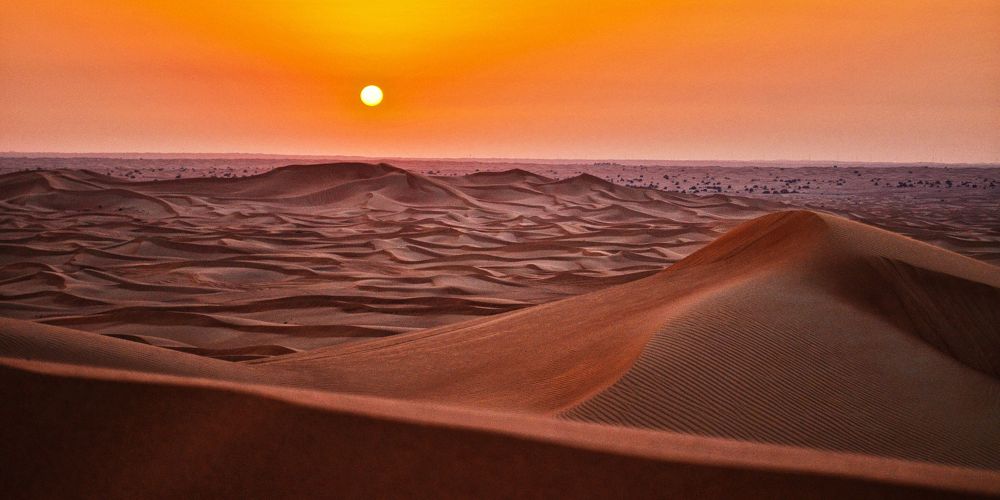For those of you who are fans of sci-fi, you'll probably be well aware that the much-anticipated remake of the movie Dune—directed by Denis Villeneuve—is set to drop in 2020.
This isn't the first time that Frank Herbert's 1965 novel of the same name has been adapted to the silver screen, and the most famous example of it to-date is David Lynch's 1984 version of it.
A sprawling space opera set in a far-distant future where humans have created an interstellar empire, Dune follows Paul Atreides—son of Duke Leto Atreides—as he moves to the planet Arrakis. He then seizes control of the empire by overseeing the production of Melange, colloquially known as "spice."
This summary barely scratches the surface of what happens in this film, and up until writing this article it had been a long time since I'd last watched the movie. With the remake coming out in 2020, however, I figured it was worth a rewatch.
In a series concerned with the passage of time, how does Dune stand up, all these years later?
What's the Same?
Upon rewatch, the visuals of Dune are just as gorgeous as I remember them. The film features a Gothic-Tudorian-Cyberpunk kingdom, with powerful warlords feuding over entire planets.
The ultimate prize for these dukes is the world Arrakis—AKA "Dune." It's a desert planet completely devoid of moisture, and the sole source of spice production in the galaxy.
As spice is the substance that makes space travel possible, Arrakis is incredibly valuable. The Emperor, fearing the rise of the Atreides family, seizes control of the planet from the Harkonnens, a rival faction of warlords.
Seeking to curtail the Atreides' power, he gives Arrakis to them in order to ferment a conflict with the Harkonnens. With this, the Emperor believes, the Atreides will be contained.
However, it doesn't take long to see that this grave misjudgement on the Emperor's part will be his undoing.
Dune's dense political drama—similar to Game of Thrones—is one thing that initially drew me into the series. It's worldbuilding is fantastic, complete with mind-bending space witches and giant worms.
I'm interested to see how Villeneuve tackles this imagery in his yet-to-be-released 2020 remake. Will he keep these iconic designs, or push them further?
It's hard to say at this stage in the game, but the visuals of Dune are what hold up the movie. Without them the story is rather flimsy, and upon rewatch I'm unhappy to report that Dune has not aged well. The narrative—and the traps it falls into—leave much to be desired.
What's Worse?
I think a lot of my newfound discomfort stems from the fact that I haven't watched Dune since I was a teenager. Content issues I was ignorant of at an earlier age are now readily apparent in this film.
Paul Atreides is a character I've never been able to identify with. He's perfect at everything he does, and with this perfect disposition and royal lineage there is little internal development when he graduates into even more wealth and privilege by becoming the absolute monarch of Arrakis.
How can a character learn from their mistakes when they've made no mistakes to start? There's no stakes because there's no real danger: Paul is the living embodiment of the "Chosen One" trope, where the gods and destiny have put him on the singular path to success.
Dune also relies heavily on colonial notions of land expropriation and perceived entitlement. The Atreides family and the other noble houses within this empire are colonial overlords seizing planets from native populations rich in resources.
It would be one thing to show this narrative as a critique of colonial practices, but Dune makes the case that access to these planets is the inalienable right of Paul Atreides, even though he's an outsider.
But wait, there's more to critique.
Dune's treatment of women is suspect, and the abhorrent treatment of gay men and the text's outright disgust at anyone who is overweight is jarring.
"Fatness" and homosexuality are conflated with criminality and sexual perversion, visualized through the deviant behavior of the Baron Harkonnen—a boil-covered sexual predator who is so overweight he must move around in a floating chair.
To add to this growing pile of "yikes, what were they thinking?" is Dune's final and perhaps unintentional love letter to eugenics. In the setup for this movie, we learn that the Bene Gesserit—an order of space-faring witches—have been trying to breed the perfect human. Paul Atreides is the end result of this project.
An exploration into the horrifying implications behind selective breeding would have been fine to explore if Dune had discussed how the program had negatively impacted both Paul and his mother. Instead the movie—and by extension, the book it was based on—posit that breeding humans like cattle is a good thing. It rewards these characters for their "purity."
What's Better Than I Remember?
Unfortunately, I don't think there's anything about this film that strikes me as "better" upon rewatch. There are visual elements that are beautiful, to be sure, but I've always appreciated the visuals. Everything else, from the story to the characters, appears circumspect in a modern light.
This makes me sad on a personal level, as Dune was a large part of my childhood and I wish it had aged better. Rewatching old movies that we used to enjoy doesn't always have to end in tragedy, however. Sometimes the things we previously hated can surprise us in the most unexpected of ways.

